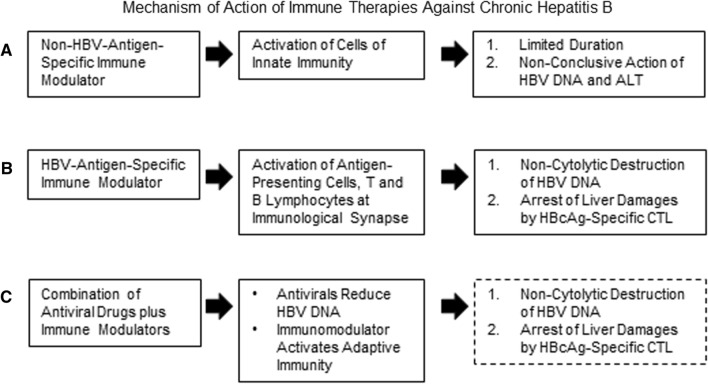Fig. 2.
Mechanism of action of immune therapies against chronic hepatitis B. A Non-antigen-specific immune modulators usually activates cells of the innate immunity and these are of limited duration. Accordingly, independent usage of these agents is usually unable to contain HBV replication or control liver damage. B HBV-antigen-specific immune modulators activate antigen-presenting cells and induces antigen-specific immunocytes, these are usually long-lasting. These HBV-specific immunocytes are capable of non-cytolytic containment of HBV replication. If the HBV-antigen-specific immune modulators contain HBcAg, it is highly plausible that HBcAg-specific CTL would control liver damages, as shown in CHB patients [40]. C The cellular mechanisms underlying usage of antiviral drugs and immune modulators have not elucidated in CHB patients and this remains an area of investigation. It may be postulated that antiviral drug would reduce the levels of HBV DNA. The immune regulatory role of combination therapy would depend on the nature of the immune therapeutic agents

